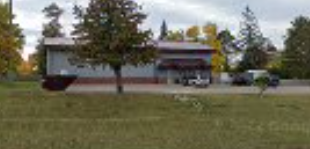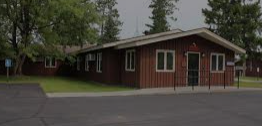Leech Lake

Contact Details
-
Name:Leech Lake
-
Address:409 3rd Street
Cass Lake, MN - 56633 -
Phone:218-335-4514
-
Email:
-
Website:
Description
There are currently state and federally funded or sponsored drug and alcohol treatment centers in the state of Minnesota
Questions & Answers
Help others like you find out more about Leech Lake. Do you know the answers to any of these questions? Contribute now and help others like you.
What kinds of care do they offer?
-
Substance use treatment
Refers to a broad range of activities or services, including identification of the problem (and engaging the individual in treatment); brief interventions; assessment of substance abuse and related problems including histories of various types of abuse; diagnosis of the problem(s); and treatment planning, including counseling, medical services, psychiatric services, psychological services, social services and follow-up for persons with alcohol or other drug problems (Institute of Medicine, 1990).
What types of opioid treatment do they provide?
-
Buprenorphine maintenance
-
Prescribes buprenorphine
What opioid medications are used in treatment?
-
Buprenorphine used in Treatment
Buprenorphine is used in medication-assisted treatment (MAT) to help people reduce or quit their use of heroin or other opiates.
What types of treatment approaches do they offer?
-
Cognitive behavioral therapy
Involves recognizing unhelpful patterns of thinking and reacting, and then modifying or replacing these with more realistic or helpful ones. The therapy can be conducted with individuals, families, or groups, and clients are generally expected to be active participants in their own therapy.
-
Substance use disorder counseling
A short-term treatment that has been generalized for a variety of disorders including opiate drug dependence and cocaine abuse. The therapy includes supportive techniques which encourage the patient to discuss personal experiences, and expressive techniques, which enable the patient to work through interpersonal relationship issues and gain greater self-understanding.
-
Brief intervention
A short-term intervention, usually one to five sessions, for substance abusers who are not yet dependent.
-
Contingency management/motivational incentives
Often used in the treatment of drug and alcohol abuse, the approach employs a positive-reinforcement treatment method in which patients are given rewards for constructive actions taken toward their recovery.
-
Anger management
Uses strategies to address the anger cycle, conflict resolution, assertiveness skills, and anger-control plans. The goal of anger management is to reduce both emotional feelings and the physiological arousal that anger causes.
-
Relapse prevention
A cognitive behavioral therapy developed for the treatment of problem drinking and adapted later for cocaine addicts. Cognitive behavioral strategies are based on the theory that learning processes play a critical role in the development of maladaptive behavioral patterns. Individuals learn to identify and correct problematic behaviors. Relapse prevention encompasses several cognitive behavioral strategies that facilitate abstinence as well as provide help for people who experience relapse.
-
Smoking permitted without restriction
Smoking permitted with no restriction.
What type of setting is this location?
-
Outpatient
Describes patients who receive treatment services without an overnight stay at a treatment facility or hospital.
-
Outpatient methadone/buprenorphine or naltrexone treatment
Who is responsible for the operation of this facility?
-
Tribal government
A governing body of a group of Native American Indians or Alaska Natives that qualifies as an Indian tribal government determined by the Internal Revenue Services.
What types of payment or funding do they accept?
-
Medicaid
A joint federal and state program that helps with medical costs for some people with low incomes and limited resources. Medicaid programs vary from state to state.
What ancillary services are offered at this facility?
-
Case management service
Helps people arrange for appropriate services and supports through a case manager who monitors the needs of clients/patients and their families and coordinates services, such as mental health, social work, health, educational, vocational, recreational, transportation, advocacy, and respite care, as needed.
-
Transportation assistance
What types of recovery support services are offered here?
-
Housing services
Are designed to assist individuals with finding and maintaining appropriate housing arrangements.
What kinds of education and counseling services are offered here?
-
Individual counseling
Process through which clients work one-on-one with a trained mental health clinician in a safe, caring, and confidential environment.
-
Group counseling
Form of therapy where people with similar experiences/issues come together with a professional therapist.
-
HIV or AIDS education, counseling, or support
Access to education, counseling, and support groups to ?at risk? individuals and also individuals who have been infected with the virus.
-
Substance use disorder education
What age groups are accepted here?
-
Young Adults
Facility accepts young adults (13-25) for treatment.
-
Adults
Facility accepts adults (26-64) for treatment.
What genders are accepted here?
-
Female
-
Male
What kinds of transitional services do they provide if any?
-
Aftercare/continuing care
-
Discharge Planning
A process that aims to improve the coordination of services after discharge from the hospital by considering the patient?s needs in the community.
-
Naloxone and overdose education
What types of screening and assessment methods are used here?
-
Comprehensive substance use assessment
-
Screening for substance use
Test to determine whether a person is experiencing symptoms of substance use and needs treatment.
What types of testing do they offer?
-
Drug or alcohol urine screening
Analyzes your urine for the presence of certain illegal drugs and prescription medications.
What specific pharmacotherapy treatments do they provide?
-
Buprenorphine with naloxone
A prescription medication that combines buprenorphine (which helps relieve symptoms of opiate withdrawal) and naloxone (reverse the effects of narcotics) used to treat opioid addiction.
What types of alcohol abuse treatment are available at this facility?
-
Does not treat alcohol use disorder
What types of license or certifications or accreditation does this facility posses?
-
SAMHSA certification for opioid treatment program (OTP)
What exclusive services do they offer?
-
Opioid use disorder clients only
How do I apply for admission at this location?
Have you been to this facility? What was your experience?
Is there a wait-list for treatment center?
Is any payment required?
Related Posts
Oshki Manidoo Center
- Bemidji, MN
- 15.53 miles away

